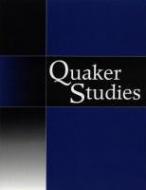
Abstract
This article addresses two gaps in the historical literature on the modern civil rights movement. First, it highlights the contributions of the American Friends Service Committee (AFSC) to the struggle for racial justice in the South. Second, it reveals the importance of radio broadcasting in helping to create a climate in which southern white racial attitudes and discriminatory practices were challenged. It demonstrates how AFSC-sponsored broadcasts reflected Quaker principles, but also how debates over appropriate programme content exposed the tensions between principled and pragmatic considerations, morality and expediency, that shaped the Movement and determined the AFSC's role in it.
Recommended Citation
Ward, Brian
(2006)
"Broadcasting Truth to Power:The American Friends Service Committee and the Early Southern Civil Rights Movement,"
Quaker Studies: Vol. 10:
Iss.
1, Article 6.
Available at:
https://digitalcommons.georgefox.edu/quakerstudies/vol10/iss1/6
